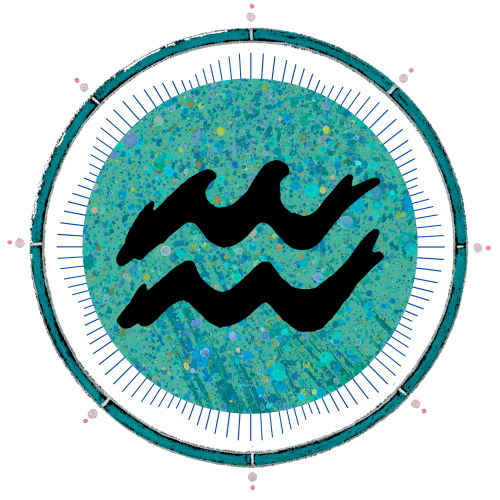Originally published June 23, 2016 | Link to original
Dear Friend and Reader:
Have I mentioned that I’ve been trying to figure out the internet?

I was aware that when you click on something, something new appears on the screen. I knew if you post a naked picture to Facebook they kick you out for a while.
What I’m talking about is the same thing that you worry about: such as how Twitter is dumbing down the whole world. Things like the smartphone contributing to people being less smart and less able to concentrate, and someone crossing four lanes of Sixth Avenue in heavy rush-hour traffic while gazing at the screen (I actually saw that recently; apparently it’s commonplace).
Every time a new breed of communication devices is born, society is reshaped. The mother of all changes was the alphabet. Then came the book. Then came the telegraph, and the pace increased. Every time one of these things happened, society was reinvented in some fundamental way.
For the past couple of years, I’ve been going deep into the work of the first philosopher of media, Marshall McLuhan. With his grandson Andrew as my study buddy and collaborator, and Marshall’s son Eric as my ad-hoc grad school professor, I’ve made some progress that I will summarize for you in this article; but first I want to look at the astrology of the moment, and what it says about the so-called digital revolution.
However, keep this in mind, written by Prof. Eric McLuhan: “The body is everywhere assaulted by all of our new media, a state which has resulted in deep disorientation of intellect and destabilization of culture throughout the world. In the age of disembodied communication, the meaning and significance and experience of the body is utterly transformed and distorted.”
The Uranus-Eris Conjunction, Then and Now
We are now in the midst of an astrological event with profound and sweeping effects. This is the conjunction of two distinctly modern planets: Uranus (the first planet ever discovered by science, in 1781) and Eris (the 2005 discovery that resulted in the ‘demotion’ of Pluto).

First of all, this is a conjunction: the most powerful aspect, and the one that marks the end of one cycle and the beginning of another. Second, when two planets that move this slowly join forces, the effects are profound, and often so vast that nobody can see them clearly till they’ve already happened.
There are many examples, but two might suffice. In the mid-1960s, slow-movers Uranus and Pluto joined forces (in Virgo), and we experienced one of the most amazing cultural upheavals in world history.
In the early 1990s, slow-movers Uranus and Neptune joined forces (in Capricorn), and global geopolitics rearranged itself. The USSR dissolved seemingly overnight. If you’re curious about this kind of astrology, I suggest you read a book called Cosmos and Psyche by Richard Tarnas, who gives 600 pages of these examples.
The current event involves two distinctly high-energy and unpredictable planets. Uranus covers themes of revolution, invention, technological breakthrough and social upheaval. Eris (a whole new kind of planet, with a 558-year orbit) is also a subversive and a revolutionary in her own right. It’s fair to say that themes of Eris include seeking identity through conflict, as well as up-ending the known social order. This is happening in Aries, the zodiac sign symbolizing the idea of self and perhaps the most potent of energies. Put this all together and it’s clear that the thing we need to be looking for is a revolution of identity.
I’ve been delineating and dismantling the symbolism of Eris since before it was named in late 2006. From my earliest work, it seemed to represent a deconstruction of identity. This partly involves Eris, and partly its action on Aries (which is about identity — Aries in its role as the sign of “I am”).
Eris moves so slowly that it spends 121 years in Aries — long enough for Uranus to make its way around the zodiac and meet up with Eris for a second conjunction in Aries. The last one was about 90 years ago, in 1927 and 1928, when Eris first arrived in Aries. These rare conjunctions can have a window of action of 15 years. They also represent points of no return.
Over the past few weeks I’ve been getting a handle on what that timeframe is about. The 1920s came with the advent of radio. The first mass medium not involving the printed word, radio shifted identity from something highly individualistic (cultivated by the book) back in the direction of tribal existence. It was also the first form of widely available instant communication, collapsing space and time.

For the first time people could hear an event as it was happening — something extremely destabilizing to both individual and collective identity. This may seem like so little today, when radio has been reduced to commercials, the worst music and Rush Limbaugh. When it first came out, however, it was a stunning revelation — that voice and music could be transmitted over long distances without physical presence or even with wires.
Two other vital things happened related to media technology. The first television image was broadcast (a Felix the Cat doll rotating on a turntable) in 1928, right during the Uranus-Eris conjunction.
It might have taken some imagination to see what that scratchy image would become in the next few decades: how much would change, and what madness would ensue.
And in 1925, the first patent for a transistor was filed. The transistor led the way to every subsequent electronic development, but mostly to the computer and then, in turn, to the internet.
By the end of the 1920s, and the Uranus-Eris conjunction in Aries, the electronic revolution was not only well begun, but inevitable. By 1930, the BBC was in business, broadcasting five days a week.
New Media Change Everything
It’s difficult to describe in a few paragraphs what this did to society and to people, but it’s fair to say that it changed absolutely everything; most significantly, how we think about who we are. This had nothing to do with the content of the devices; it had everything to do with how they structured society.
It’s worth noting that this sweeping change from every perspective developed below the level of analysis or awareness, while it was happening. Our society tends to embrace new technologies with no forethought of their impact. There’s just the assumption that this will make things better. Yet there are always strange effects.
People’s concept of space and time was totally collapsed by instant communication. We moved rapidly from a society based on literacy to one based on the much older oral tradition of storytelling. A tribal quality took over, as personal identity gave way to the kinds of group identity fostered by electric media. This took a huge toll on literacy, which in turn has taken a toll on processes like reasoning.

There is also something about collective memory here. Broadcast media is ephemeral. It tends to disappear. Until recently, you could not capture it for verification or re-watching.
It tends to depend on emotional triggers rather than facts or research. The TV image is so powerful that what we see is presumed to be true because it looks that way. Basically, electronic media is all about pressing your buttons, so to speak.
Yet it also nearly reversed 2,000 years of gradual progress made by literacy, progress that included individuality, inner awareness, and key reference points to the past. For example, Harry Truman claimed that God told him to detonate the atomic bomb over Hiroshima. It sounded good at the time, but because he said it on the radio, how and where exactly do you verify that?
To this day, most people think it was a good idea to vaporize 150,000 people, and then to do it again a few days later to another city. Radio, which does not foster critical thinking, is an amazing tool for propaganda, and for triggering group think.
Personal identity was being run through the blender. We entered the “no time to think” phase of history. Instant communication led the way to mass reaction rather than to individual response. This changed expectations on every level, such as notions of community and relationships and self.
By 1938, it was possible for Orson Welles to do a radio drama that in 45 minutes convinced millions of people that Martians were invading the planet. Like many charts in this genre, Eris shows up big time — in an exact, to the degree, opposition to Mars. Fantasy and reality — in this case, of interplanetary warfare — were seamlessly merged.
A German philosopher named Martin Heidegger (1889-1976) noted early on that these media have the effect of disembodying people. That is, they take us out of our bodies and thrust us onto some other level of awareness. He viewed this as a good thing, since being disembodied was one step closer to the angels and therefore a kind of path to finding God.
Really, what we got was what Eric McLuhan said in the quote above, worth printing in large format and hanging on the wall: “The body is everywhere assaulted by all of our new media, a state which has resulted in deep disorientation of intellect and destabilization of culture throughout the world. In the age of disembodied communication, the meaning and significance and experience of the body is utterly transformed and distorted.”

Part of that distortion involves the power of new media to extend our senses and awareness to the point of hypersensitivity; and then this is so overwhelming that the result is to numb out; to cut off; to retreat and to ignore. Further, the sensation that everything is happening everywhere, all at once (and the resulting overwhelm, leading to even more cutting off of awareness), is purely the creation of electric media.
Remember that new technological developments are never assessed in advance. Eric’s father, Marshall McLuhan, proposed that the people who push these devices and communications systems on us care no more what they are doing to us than a fighter pilot cares about the people and things he bombs.
Apple does not care about the actual impact of the iPhone; it cares about making money selling as many iPhones as possible, no matter what they do to society or to people. Bombs away!
Which leads us to today. The first Uranus-Eris conjunction in Aries 90 years ago marked the beginning of a society driven by electric media, which has now come to full fruition today. The early internet accelerated all of these processes begun by electric media in the 1920s. Yet it was the advent of the pocket computer — the ‘smart’ phone — that swallowed us.
The internet used to be something that you went to; that you would have to consciously enter. Now it’s something that follows us everywhere. Nearly every financial transaction except putting a quarter in a gumball machine is tracked by the internet. Every relationship is conducted by internet, many exclusively so. Most shopping and purchasing happens by internet. Most information is conveyed by internet. Music, news, art — internet, internet, internet.
We project ourselves into various profiles and identities that have a way of fracturing and fragmenting what was already a fragile sense of self and of existence. This has nothing to do with the content that’s being broadcast; it’s about the structure.
No tweet has ever changed your life or changed the world. But the idea that one could say something meaningful and relevant in 140 characters has had an effect on all of thought. That’s the latest thing — say it in 140 characters, whatever it is: review a play, comment on global politics, run for president, break up with your lover: one size fits all.

Further, Twitter, in particular, is the very dynamo of lack of context.
This loss of context ends up as a feeling: of meaninglessness.
We can claim this back. There is time, and there is potential. The Uranus-Eris conjunction of 2016 and 2017 also can be read as a personal revolution, a reclaiming of personhood, of awareness, of identity — rather than of branding and tribal affiliation. Ah, but that will take what feels like work. What feels like entering the supposedly daring space of actually asking who you are and what you want. We would need to face some unpleasant truths about what has been done to us before we have any possibility of undoing those things.
Go ahead. It’s dangerous, but it’s worth it.
Lovingly,




